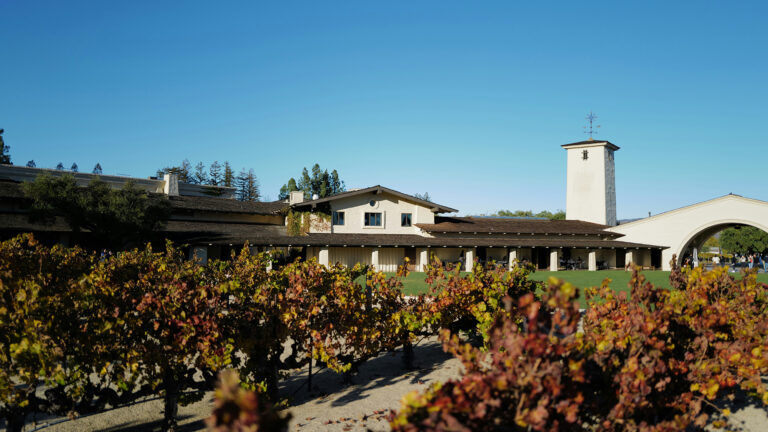(Watch the video interview by clicking the arrow)
Note: Bob Hunkeler will be inducted into the Markets Group Hall of Fame at the Alts NY conference. Join us in person to celebrate.
Transcript of video:
Christine Giordano
Hi, my name is Christine Giordano. I’m with Markets Group and I’m here with Bob Hunkeler. He’s the vice president of investments for International Paper.
Now, those of us who have been in the industry a little while, know that Bob has been in this industry for over 20 years and he has seen quite a few things and actually fought for quite a few things and will retire this year. So this will function as an exit interview and we will also be happily giving him a Hall of Fame award this year at our Alts New York conference. Welcome, Bob, how are you?
Robert “Bob” M Hunkeler
Doing well, Christine, thank you.
CG
So when are you actually going to retire?
RH
March 31st, [2023, so in about 30 days from when this interview was done.]
CG
Any plans for afterwards?
RH
My wife and I are dual nationals of the United States and Switzerland. So we will be spending lots more time in Switzerland, our second homeland. So about a week after I retire, we’ll be taking off for a few weeks.
CG
Oh, fantastic. So you’ll be sending photos making us all jealous.
Over the course of this interview, I’d love to go over your career and some of the innovations that you’ve brought to the fund and some of the challenges that you’ve faced as well as some of the things that you’ve fought for [all corporate] pension funds across the United States, so where to start? I know early in life you were actually a chemist and you’ve changed that up quite a bit. So how about we start there?
RH
OK. So yeah, you’re right. I was. I studied chemistry and got my first job as a chemist, a lab technician in Basel, Switzerland. I’ve done a year abroad before, starting with what’s now Novartis.
And after about two years, I realized that chemistry was not my first love, ands o I decided to go back to Business School, got my MBA, went back to work and Basel, but now, working in the finance area, and after a couple of years, decided that it was time to explore the United States lest I never come back. And so, we returned to the United States and I got the only job that was available at the time.
For me, it was in the pension area and so that’s where I started. And I would say the first year was kind of rough. I didn’t know what I was doing. I knew nothing about pensions, including my own and kind of had to learn how to swim. And the first year there were days when I didn’t know whether I was going be fired or praised. And so it wasn’t until after about a full year that I started to get a little bit of confidence in what I was doing. And from that point on, I just loved the field more and more as I learned more and as I did more projects.
I just really enjoyed what I was doing. I enjoyed the working for Bill and the team they had there at Ciba-Geigy.
And so, I just kept pursuing that. Initially I thought I would grow from pensions, maybe into other areas of finance, such as cash management and corporate finance, things like that, which I did do at my next company, which was Sandoz.
And I did that for a couple of years and then started moving into the Treasury area. And when Sandoz and Ciba-Geigy came together to become Novartis, I worked there during the merger process, and shortly thereafter, I decided I was going to look for some other opportunities. I searched around, found International Paper or they found me and I started with IP, then in February of 1997, again, thinking that I would maybe branch out to other areas of finance over time. But I think after about two years of doing that, I really came to the conclusion that it was hard to find a better job than the one I had. And I asked my boss at the time if it would be OK if I pursued that as a career and she was OK with that, and so, from that point on, I devoted all of my attention to managing IP’s pension and savings plans.
CG
So how many years has it been now?
RH
26 at IP.
CG
Nice. And over the course of those years, what have you brought to the plan that you thought would really work that hadn’t been in the plan in the past?
RH
I think the biggest thing would be what we did in the savings plan area. When I joined IP, the plan had very restrictive covenants, especially around company stock.
We had, I think only six investment options, monthly valuations, it was expensive compared to what we’re paying today. And so, I saw there was an opportunity to make a lot of improvements there.
And one of the biggest challenges back then, it may seem silly today, but back then, the idea of having an unbundled system — one where you select your record keeper separately from your investment manager, separately from your custodian — that was just not around, and there weren’t any players out there willing to go that route with us.
And it was quite by accident: We had made a large acquisition of Champion International in the year 2000 and that really opened up the possibility to do what I wanted to do, which is to create a fully unbundled savings program. The record keeper for champion was JPMorgan American Century at the time, and I think they saw that they needed to play with us the way we wanted to play, otherwise they would have lost the business altogether. And so they did. And from that point on, we were able to construct this completely decentralized system, where, if we didn’t like the record keeper, we could change the record keeper. If we didn’t like the investment managers, we could change the investment managers. We were able to create what today are called White Label funds using our pension funds. And so that was very liberating. Doesn’t seem like much today because many other plans do that today. But at the time, that was not an easy change to make. And so I’m glad that we were able todo that. And then we also had internal resistance too to some of the things that we wanted to do that we had to overcome.
And so in the beginning there was a lot of spinning your wheels before we got to a point where we had the people, the ideas, all together, where we could really start accelerating the changes. And that’s what happened. I would say, about the year 2002, we were in a position where we were able to start making some more significant changes to the plans.
CG
What was key to actually pushing it forward and getting it to actually happen?
RH
I hate to say this, but I think part of it was moving some people out of positions that they were in, that were roadblocks. And I’d gotten to a point where I was so frustrated with the fact that the projects were not moving at all the way I wanted them to move. I went to my boss and I said, “Look, if we’re not going to make a change here, I’m going to stop working on this stuff. And about a week later, things started to change.
I hate to say that a person or people can stand in the way of progress, but that’s what it was. It took getting some people out of the way so that we could start moving forward.
I keep a book in my office that I used to show to some of my new recruits called Stone Soup.
And it’s a children’s story about soldiers that come to a town. They want to eat something and the town people don’t want to participate, and they start by saying they’re going to make stone soup. And little by little, the towns people jump in and everybody adds a little bit of something to the soup.
And at the end, they have this wonderful soup that everybody gets to enjoy. And I always use that assort of an example of what we were trying to do back then; just get that momentum going. And then, once the momentum is there, everybody will be will be jumping in and be wanting to be a part of it.
CG
And you’re also adding things now to your DC plan, correct? Opportunities that weren’t there in the beginning that are kind of fleshing things out?
RH
Yes, I mean one of the one of the philosophies that we follow is that if:
1. It’s good for the participant,
2. If it doesn’t cost the company anything, and
3. If it’s permitted by law,
Then we should make it happen. And so, there were just a ton of ideas out there that are like that, that were very easy in some ways to implement because they met those criteria. And it’s still astonishing to me that many plans don’t have all of these features. They don’t cost anything, really. And it’s just really about your philosophy towards the kind of liberties you want to give your participants in their plans. And so, yes, we were able to be early adopters of auto enrollment, auto escalation, Roth. We’ve always had lots of ways in which people can get their money out of the plan when they retire. It’s not just a lump sum. They have installment plans. They can take loans both during your employment and after. So we tried to make as many things available to our participants that were easy to give, didn’t cost much and were legal.
CG
Makes sense.
On Being Sued for Innovations to Plan
(11:20 minute mark on video)
CG
Being innovative has not always been easy for you. As far as what you’ve done with the plan, you’ve taken the risk of making yourself a target. I was wondering if we might go into the lawsuit around that, how that was kind of a crimp to your style, perhaps? Or how you were actually targeted for your innovation and managed to survive that.
RH
Well, I think the interesting thing is, the first claim was filed back in, I think, September of 2006. And I remember when I read the claim, I tried to understand what we were guilty of. It felt almost like we were the dolphin caught in the tuna net. I think for good reason, the original claim had to be amended because we weren’t guilty of the things that they were claiming we did.
So I think the plaintiffs took a broad brush approach and we just happened to get caught up in that initial set of companies that were actually the very first 401k lawsuits that have become so popular today.
It’s something that went on for about 6 years.
The very trying thing is to have to go through depositions.
I guess the objective of a deposition is to discredit anything you’ve ever done, and if you’ve ever done anything good, ‘you didn’t do it fast enough.’
So that was an experience I wouldn’t wish on my on my worst enemies.
And in the end, what was settled was, in my opinion, very unsatisfying. I don’t think the participants benefited much about at all from what came out of it.
And some plaintiffs got rich doing it.
CG
So lessons learned coming out of that might be? Your advice to other CIOs?
RH
I’d hate to say that the plaintiffs should win this type of [lawsuit.]And when I say plaintiffs, I mean attorneys. I don’t mean the actual plaintiffs that are that are named in these lawsuits, because I think they’re just people who don’t really understand what they’re getting into, usually. And they you know, just go along for the ride.
Try not to succumb to the pressure. Try to stay true to what you believe in and it just means you have to fight harder to push the things that you most believe in, because it just gets that much harder. You know, when you stand out as different from others, then you make yourself a target, especially when things don’t work for some period of time.
Perfect example of that is the pursuit of active management. It is something that I believe in. It’s something that we have practiced in our pension plan as do many other plan sponsors. But we also practiced it quite religiously in our401K plan, and, we think, to the benefit of our participants.
We have data that would show that our participants had benefited from active management over time. But that just means you’re fighting all the time and every time one of your active managers is underperforming, which they invariably will do from time to time, it’s that much harder to defend, to defend those managers and your strategy. Because, you know, at the end of the day, what’s in it for the company to take that risk?
And I think that’s really one of the negative outcomes of all of this. All of these lawsuits.
CG
And just to clarify, the settlement per participant was in the range of…
RH
What I remember, is, I think it was somewhere in the neighborhood of $30million settlement and the settlement to the average participant received was a few 100 bucks.
CG
A few 100 bucks. I could speculate on how that might crimp an investor’s style and how much more money could be made if they had the wings to fly and use their acumen…
And obviously your returns have been high or you wouldn’t have a job, and it wouldn’t have lasted this many years.
And thank you for sharing your story.
You went on from that, you became something of an activist within the trades group CIEBA, which unites CIOs of corporate plans.
And you’ve helped become a mentor to other people in this industry.
I was wondering if you could touch on some of the things that you’ve really kind of helped people through and pushed for within the government, within the trade group?
Protecting Plan Participants from Non Fiduciary Investors
(on Video at 17 minute mark)
RH
Well, one of the big things was protecting participants in a fiduciary environment, keeping them protected after they retire, even if their if their assets are taken out of our plans to another, let’s say brokerage environment, or IRA environment, that those assets remain under a fiduciary umbrella.
We think that is so critical that the people that are working on behalf of the participants are, in fact, working with their interests in the forefront, not as a secondary consideration.
And so, that is something that CIEBA has been lobbying for a long time. It’s still a hot button item.
And you know, we’ll continue to fight for that, that the best environment is a fiduciary environment.
CG
So just to clarify, so that all viewers could understand, the fiduciary environment means that the participants investments come first: you’re not making extra money on the side, that’s not your goal. Maybe you could explain it a little better than I?
RH
Well, I think you said it right: it’s that your clients’ interest come first. Period. That’s the Golden Rule of a fiduciary. It doesn’t mean you can’t make money off of your participants as well, but it has to be always with the intent that it has to first be good for the participant before it can be good for anyone else.
So that’s number one. You have to have loyalty to your participants, you have to have knowledge and be be a prudent expert in what you do.
I can’t tell you how many times I’ve seen claims that our plan doesn’t have this or doesn’t have that.
And it does. Clearly the person that is trying to convince participants to leave our plan has not even bothered to study what our plan offers. I don’t think that should be an excuse. I think they have to know what our plan offers before they can claim whether what they are offering is better. So things like that I think are so important.
That we protect participants from folks that would take advantage of them, frankly, and not always act in their best interest.
CG
And it seems like a no brainer there. What are some of the challenges?
RH
Well, I guess the biggest challenge is that… you know, I like to say that Corporations, I think, generally do favor keeping participants in their plans.
But they’re not going to spend necessarily the kind of monies it would take to convince employees to stay in their plans as the industry might be able to spend to get those participants to leave our plans. So you’re fighting a war with pistols against howitzers. And so, I think, right there, there’s one of the big challenges of trying to keep people in your plan. You know, it’s just companies. It’s not their job to be investment firms.
So their #1 focus is not is not going to be: How do we keep people in our plan? You know, it’s going be running the companies and if the people choose to leave their plans, then so be it. However, I think, the participants need to be shown exactly what they’re getting into so that they fully understand what they’re leaving behind.
And I think, quite often, they’re, leaving quite a bit behind, including in our plan. I mean, we lose a lot of our participants after they retire from the company.
CG
So after they retire from the company, they become prey to those who want to manage their money, basically.
RH
Yeah. I mean, there’s a huge financial incentive to do that, right? I mean, ifI were a financial institution, I would be licking my chops to get at our participantpopulation. You know how hard it is to assemble that kind of asset base if youhave to go out into the retail world to fish for it.
Here you have it nicely consolidated in one company and you know the fishing isgood.
CG
What are your assets under management now?
RH
Savings plan is about $5.7 billion-ish and the pension funds around $9 billion.
CG
Yeah. Sounds like good fishing for people who aren’t fiduciaries.
Things that Made a Difference Over the Years
(at 22 minute mark)
CG
If you could walk me down memory lane and talk about some ofthe things that you’ve seen over the years that have really made quite adifference for beneficiaries of plans and for investors.
RH
I think it was interesting if you went back to the late 80s or early 90s. Imean I like to say that was probably the best of times for corporate CIOsbecause pension plans were fully funded, or way overfunded, in many cases. Savingsplans and 401(k) were just starting to grow into some significant size.
And so the biggest issues that we were facing back then were really: how do youmake pension plans portable? It seems almost quaint today, you know? And how doyou expand the so-called 3-legged stool to make it available to everyone? Thatpretty much ended with the recession of 2000 to 2002.
And at the same time, you had a slew of legislative, regulatory and accountingchanges that all work together against pensions and made pensions (DB plans)much more difficult to support and as a result, you saw a number of companiesfirst close their plans to new hires and then later freeze them.
And IPs are an example of that. Our salaried plan frozeclosed in ’04 to new to new entrants and froze at the end of ‘18. We still havea Union plan that’s open and accruing, but the salary plan is now frozen andmany other plans in this country have done similar things.
So I think there was almost a conspiracy of legislation, regulation and accounting provisions that just killed pensions and it’s unfortunate that happened, and at the time CIEBA was saying loud and clear that if you enact all these different provisions at the same time — we called it the missiles project — you’re going to kill this thing and I think they have. That’s what’s happened and it’s unfortunate because of what happened after these regulations were passed and legislation was passed.
A whole bunch of subsequent legislation was also passed to relieve what the original legislation was intended to do, so it was never really ever implemented, but it was enough to scare employers away from them and to close and freeze their plans so, you know, the damage has been done.
I don’t think we’ll experience the glory days of pensions like we were seeingback in the 90s ever again. And, you know, now the focus is on 401(k)s becausethere’s less of an incentive for employers to really support their 401(k)s theway they support their DB plans.
You know, it’s a big question mark in my mind as to what will happen to them overtime.
What Improvements Would Help Plans?
(At 25:45 minute video mark)
CG
What do you wish would happen? What things should, in your opinion, be in placein order for them to be successful?
RH
I think you could start with:
1. Just make it more attractive for employers tosponsor them.
2. One of the things that CIEBA has been promotingfor years now is this idea of what we call “creating a runway for innovation.”Make it easy for companies to innovate to improve their plans, so that they’resaying, “We should do this because it’s good for the participants,” not “Don’t doit because we might get sued or embarrassed in some kind of a regulatoryprocess.”
So Ithink you’ve got to make 401K’s attractive for employers to sponsor them, otherwise they won’t.
Tips for Creating a Succession Plan
(at 27 minute video mark)
CG
Obviously been there for years. What was key to creating a succession plan so thatyou can be sure that the plan is in good hands once you retire.
RH
Well, I’ve been very fortunate. I hired Carol Tush, I think back in 2000. So she and I have been working together for over 20 years.
RH
I like to say she’s someone you can steal horses with: Somebody who you know has your back, no matter what, whether she agrees with what you’re doing or not. At the end of the day, she always had my back. And so I was very fortunate to have somebody like Carol who’s not only a talent in what she does, but was also just such a supporting partner for so many years. So I would start with that.
Then I guess the other thing was, I kind of knew long ago that I’d be retiring around this time. And so you kind of start saying do we have the right people in the right places for the next step and where we didn’t have that. We went out and hired Diana Kaschub Winalski about five or six years ago from Xerox and she fit a nice position. She’ll now be Carol’s deputy. As Carol was deputy to me. And so I think just kind of seeing where you have holes and trying to fill them as best you can is the first step. I’d also say that our company tends to promote from within and I think that’s a great way to do things. I think when I see organizations that consistently have to go outside to hire their top talent, that tells me there’s something wrong in the organization.
You need to be developing your people from the ground up.
It’s not always easy but I think that’s really a key to success.
CG
How large is your team now?
RH
It’s small right now. We’re seven. When I go, there’ll be 6. So that means theyhave to be flexible and we have been flexible over the years where we’lloftentimes change the description of jobs to fit the people that we have becauseyou can’t always follow a strict pattern when you have such a small staff, butby and large, this worked. We we’ve been very flexible trying to accommodatethe people we have and when we have somebody that we like and that showstalent, then we’re going do everything we can to keep them.
CG
Makes a lot of sense and being a proponent for the case for active managementin this current environment, with rising rates with inflation: what do you justwhat’s on your mind (high level thinking)?
RH
Well, active management is hard. I believe the markets are generally efficient.
But I also believe there are plenty of places where there are inefficienciesand that if you have certain competitive advantages, you can exploit thoseinefficiencies and you should.
Because even small amounts of outperformance on large sums of money matter. Andso I think, first of all, you have to you have to be very sober about whetheror not you have a competitive advantage, so if you don’t think you have it,there’s nothing wrong with conceding that active management is not the rightstrategy for you. But if you have those things, if you really believe you havesome competitive advantages, then you should exploit them and use that to thebenefit of your company and the benefit of your participants.
Now today, I don’t know if it’s easier or harder today to add value. I thinkperhaps over the last at least 10 years, you know, Central Bank interventionhas kind of messed up the Market somewhat in the sense that certain things thatshould have happened probably didn’t happen because of central bankintervention, and the question is going to be how long will that last?
And that can last a long time. So I’m not here to say it has come to an end.But sooner or later it will.
And when it does, then you’ll see a different set of outcomes than maybe whatyou’ve seen over the last 10 years.
CG
Makes sense.
And looking forward. Are you going to be staying involved after you retire?
Do you think you’ll still be working in some capacity?
RH
If the right opportunity came along, I’m certainly not goingto do what I’ve been doing for the last 26 years. I’ve had a great career. I’mhappy with it. And if I wanted to keep doing that, I would have just stayedwhere I was because I thoroughly enjoyed the work that I had, the team that Iworked for, and everything.
But you know, if there was some thing where I could be relevant and add somevalue, sure I’d continue doing that. But if that doesn’t come along, I’m happytoo. My wife and I are looking forward to spending more time in Switzerland, asI said before. And so, one way or another, I’ll stay active in something.
Interview by Christine Giordano












